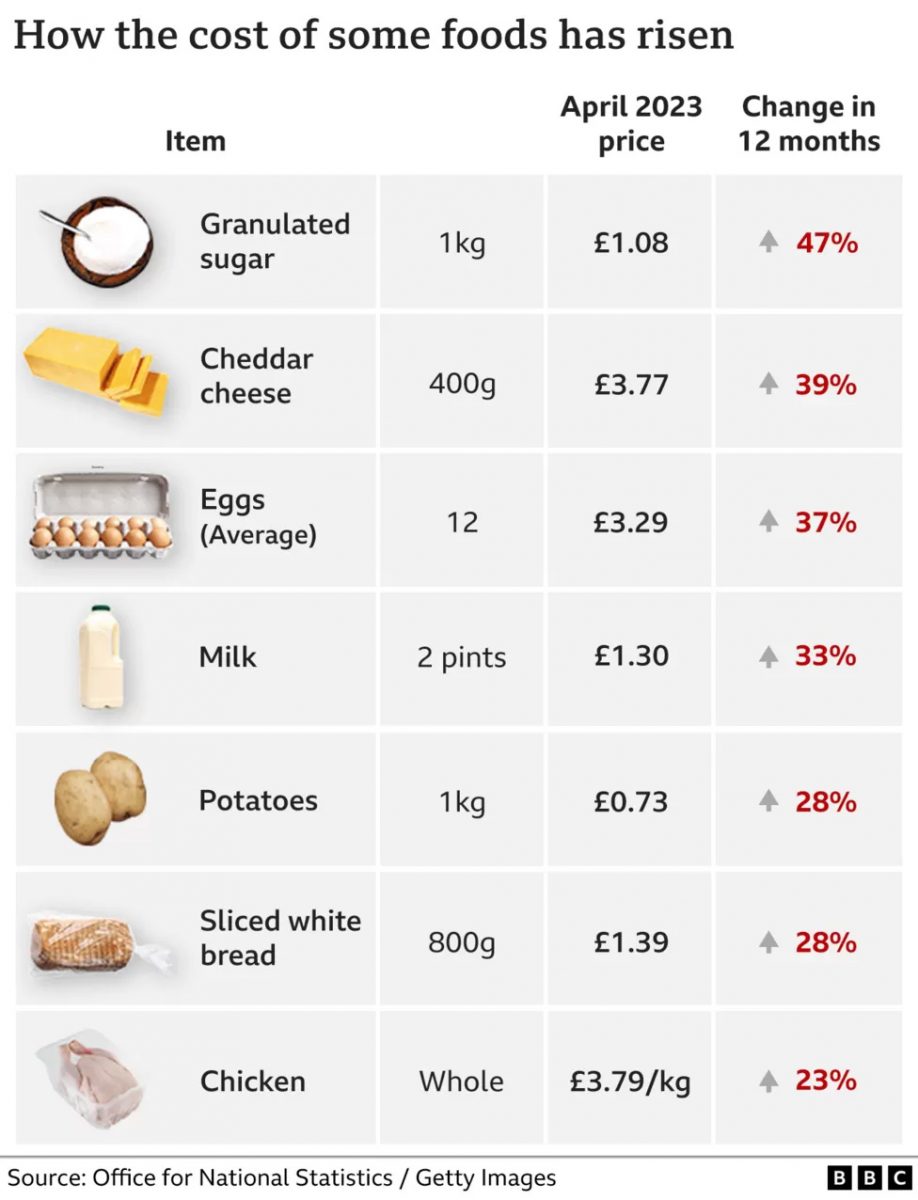NEWS · 05 June 2023
Everything is going up – and at the moment it’s food prices that are rising the fastest. So is it a “Europe-wide problem”, as the government always claims, or… is it Brexit?
Two thirds of voters now blame Brexit for rising food prices – and they are right.
Inflation is certainly a problem in the EU, but inflation in Brexit Britain is significantly worse. Overall EU inflation is 6.1% and falling while the UK’s is 8.7% and not falling as quickly as expected.
On food prices, the picture is even worse. UK food price inflation is staying stubbornly high at a massive 19% – the worst rate for decades, and even higher on some essentials. This is why the government is even looking at food price caps.

Economists are talking about a UK “inflation crisis”, not an EU one.
This is causing a loss of confidence in the British economy, with interest rates now expected to rise further, which means higher mortgage payments.
How Brexit fuels inflation
Former US Treasury secretary Larry Summers explained it well. Calling Brexit “a historic economic error”, he pointed out the triple whammy of how Brexit has increased inflation:
- Brexit cut the value of the pound, making all imported goods more expensive
- Brexit made importing more difficult, again adding to the cost
- Brexit ended free movement of labour, leading to labour shortages in key sectors
In other words, Brexit raised the prices of imports and the cost of domestic production at the same time.
And Brexit continues to make the situation worse. On 31 October, the first phase of Brexit import checks is due to finally come into force. This will push up prices even higher.
The only way to stop Brexit from getting worse is to reverse it.
